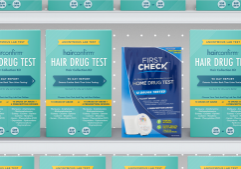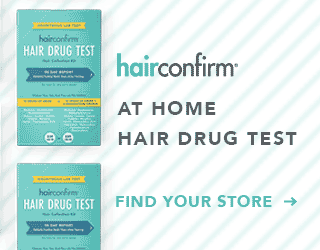How to Start Difficult Conversations
with Your Kids About Drug Abuse

It’s human nature to feel anxious about starting difficult conversations, especially with people we care about most. Talking with our kids about drugs and alcohol is one of those difficult conversations that we often feel uncomfortable starting. We worry because we want to ask questions without seeming accusatory, explain things without lecturing, and get our point across without being pushy. We might even worry that starting this conversation could plant a seed in our child’s mind, making them curious about substance use. Essentially, we worry because of how much we love our kids.
Whether the conversation is about drugs and alcohol, unprotected sex, or any other unsavory part of reality, remembering why we worry helps us move past the fear of starting a conversation. The anxiety parents feel about these conversations make sense because they come with high-stakes, as they can serve as valuable opportunities for us to protect our children from the very things that scare us most. Research consistently shows that having these real and tough conversations is parents can prevent their children from drug and alcohol use. Still, understanding why such conversations need to take place doesn’t exactly help us start them, so let’s move into how to initiate them.
- Ask and don’t assume
As parents, we often feel like we know our child better than anyone else ever could, leading us to make assumptions that can derail a conversation before it starts. Assuming what our child has or hasn’t done can prevent us from knowing the full truth. This inhibits us from understanding the conversation our child needs us to have with them. For example, a conversation with a kid who has tried smoking weed before needs to be very different than one with a kid who has no idea what weed is. While it can be uncomfortable, direct lines of questioning tend to be best, and are more likely to give you information that leads to the right conversation, the one your child needs at that time.
Examples of conversation starters:
“How much do you already know about drugs and alcohol?”
“Have you ever tried drugs or alcohol?”
“Have you ever been offered drugs or alcohol?”
“What do you think you would do if you were?”
“Are there kids at your school who drink or do drugs?”
- Listen more than you speak

How many times have you been asked a question only to be interrupted, or worse yet, never allowed to answer? Being on the interrupted side of a conversation is quite frustrating, but we might not realize how often we put our kids in this position. We can’t talk and listen at the same time, nor can we attentively listen when we are thinking about what to say next. We need to implement pause, giving our child a chance to speak; when they do, it’s up to us to truly pay attention to what they say.
Active listening is a set of skills that counselors use to encourage their clients to open up and help them feel heard and understood when they do. This tactic may be extremely helpful for parents as well. Active listening skills include asking open-ended questions and using affirmations, reflections, and summaries to help parents listen and understand.
Open-ended questions are ones which usually cannot be answered with yes or no or in one word. They are designed to evoke more information.
Affirmations are ways of validating your children and their experiences, like agreeing when they say they have been under a lot of stress at school or complimenting them for doing something well. Reflections and summaries are ways of letting your child know you are listening by repeating back something they said or pulling together a few things they said.
All of the active listening skills can be useful tools that hold us accountable for listening more than we speak, while also helping our kids feel heard and understood by us.
Examples:
Open-ended question:
“How do you tell the difference between friends you trust to see outside of school and those you don’t?”
Affirmation:
“It sounds like you have put a lot of thought into who you hang out with.”
Reflection:
“So you felt ‘weird’ about hanging out with that friend after you found out he smokes weed.”
Summary:
“It sounds like there are some people at school who use drugs, but you make an effort to hang out with kids who don’t. When you find out someone who is a friend is using drugs, you stay friends with them, but don’t hang out outside of school. Did I hear you right?”
Give it to them straight
Kids tend to be smarter than we think and likely know a lot more about drugs and alcohol than what they learned in health class. When we shield our children from certain details or present information in a one-sided way, we run the risk of discrediting ourselves.
Our kids may catch on to white lies or omissions and feel they cannot trust us to give them all the facts. In the future, they may be more likely to find answers online or from their peers instead of from us. Not being thorough and specific also means we miss an opportunity to provide information that could help them make smart choices later.
Being open and direct with our children becomes more important as they get older because they want to feel like we aren’t treating them or talking to them like little kids anymore. For example, we might be open about the fact that we have made a bad choice in the past and describe what happened, and what we learned as a result.
Example:
If your child is prescribed ADHD medication like Adderall, you could explain that sometimes people abuse this drug to get high and explain the risks of taking too much. You might also let them know that some kids try to buy this medication and explain that selling it could put them at risk of drug charges, being suspended from school, or feeling responsible if the kid who bought it had a bad reaction or overdosed.
Moderate your reactions
In the course of open and honest conversations, there may be occasions when we need to censor our reactions to the things we learn. Censorship is important because if we were to have a visibly negative reaction to something our child tells us, they might be less likely to be open with us in the future. Similarly, if we jump into “lecture mode,” begin criticizing or threaten to punish them, we could be teaching that staying quiet is the best way to avoid getting in trouble.
There are exceptions, times when a lecture or punishment might be necessary. When this is the case, we still want to moderate our reactions by trying not to yell or go off the rails. As calmly as we can, we can explain to our child why what they shared concerned us and what we feel needs to happen to help prevent the situation they disclosed from happening again. After intense conversations like this, we often need to vent, but doing so with our partner, friend, or other trusted adult results in a better outcome than letting our emotions drive the conversation we are having with our child.
Example: “I have to say that I am very concerned you have been drinking with your friends, and I am particularly worried that there have been times when you have driven home after drinking. Drinking and driving is against the law, jeopardizes your license and our insurance, and most importantly puts you and whoever might be with you at great risk of getting hurt or killed in an accident. Because of this, we are going to have to build in some safeguards to make sure that doesn’t happen again, and that might mean you are not going to be able to drive places on your own at night for a while.”
Keep the conversation open
Contrary to the popularized idea of “having the talk,” a successful conversation isn’t necessarily one with a distinct beginning and end, but one that occurs in segments over time. Having conversations with our children about drugs and alcohol isn’t a one-and-done task, but rather one left open to revisiting later. An important part of keeping conversations open includes making sure our kids know they can come to us at any point to have another segment of the conversation. We can’t just assume that they know this, we must explicitly tell them. It is important to remember that most communication happens nonverbally, meaning that the way we say things and whether our actions are consistent with our words matters. When we say one thing and do another, we can send mixed messages to our kids that can make them less sure about coming to us to talk. Each of the four steps above offers ways our actions can give credence to the fact that we want our kids to talk to us. When we ask instead of assuming, listen instead of speaking, give the information straight, and avoid overreacting, we send a clear and consistent message to our children that they can talk to us about drugs, alcohol, and other difficult topics.
Example:
“Listen… I really appreciate you being open with me about this and want you to know I am always here if you want to talk more.”
As our kids get older, they are going to encounter drugs, alcohol, and other dangers. We can’t keep them in bubbles, and deep down, we know it’s healthy for them to become more independent. Still, it makes sense that most of us are at least slightly anxious about what our kids might do with this independence, and sometimes struggle to know how to protect without stifling them. One of the most effective ways we can protect our kids is to have conversations with them and to keep these conversations going as they get older. While we won’t always get it right, asking questions, listening, and being as truthful as we can usually yields a more constructive conversation. Sometimes this means we will need to check our own emotional reactions to extend a listening ear to our children, while also hoping to catch theirs. Sometimes we will be able to get through successfully, and other times we may not, which is why keeping the conversation going is essential. Even during times when we think we aren’t getting through, we can take solace in knowing that saying something always has a higher success rate than saying nothing at all.
Support
Ordering
About Us
Connect
Confirm BioSciences.
© 2019 Confirm BioSciences, Inc.
All Rights Reserved. See our Terms & Conditions and Private Policy.



